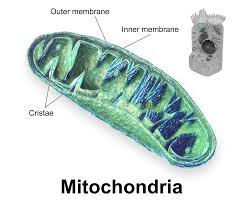“Mitochondrial damage is now understood to play a role in a wide range of seemingly unrelated disorders such as schizophrenia, diabetes, Parkinson’s disease, chronic fatigue syndrome, and nonalcoholic steatohepatitis. Recently it has become known that iatrogenic (physician or treatment-caused) mitochondrial damage explains many adverse reactions from medications.” – John Neustadt, MD and Steven Pieczenik, MD
“All classes of psychotropic drugs have been documented to damage mitochondria, as have statin medications, analgesics such as acetaminophen, and many others.” – John Neustadt, MD and Steven Pieczenik, MD
Several years ago I attended a conference that was sponsored by the United Mitochondrial Disease Foundation (UMDF), an organization which seems to be a combination patient advocacy group and a funding organization for mitochondrial researchers.
The conference centered entirely upon the rare congenital/inherited forms of mitochondrial disorders that are first diagnosed in infancy and which comprise about 10 – 15 % of cases of known mitochondrial disorders.
Nothing was said by the presenters about the 85 – 90 % of acquired forms of mitochondrial disorders, which could, of course, be preventable if knowledge of the root causes were transmitted to us physicians and patients.
During the Q & A, a mitochondrial research scientist in the audience got up and talked about a colleague of his that had written an academic paper that identified 72 commonly-prescribed drugs that were mitochondrial poisons. He mentioned Pfizer’s Lipitor and Zoloft as two examples. The author had not been able to get her paper published, and I have found no evidence that it was ever published. No comments were forthcoming from the UMDF expert that was leading the conference, and the discussion went back to the rare hereditary forms of the disease.

